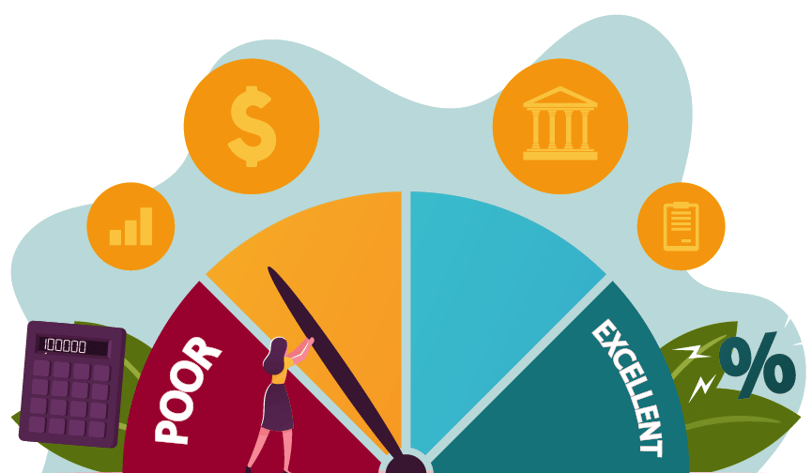Improve Your Credit Score With These 5 Tips

Your credit score will have a big influence on your financial life. But a good score doesn't come just by getting a loan and crossing your fingers. Several factors in your credit report will determine your credit score and, in turn, how easy it will be for you to get credit if you ever need it. Following the five tips below can help you to build not only a strong credit history and score but good money habits as well.
1. Pay Bills on Time
The biggest influence on your credit score is how punctual you are with payments. Consider setting up automatic payments whenever possible to minimize your chances of forgetting to pay a bill. Remember to check your account history at least twice per month to make sure all of your automatic payments are going through correctly. If your credit report shows that you've been consistent with making payments in the past, this will reflect in your credit score and you may have better luck getting additional credit in the future.
2. Keep Outstanding Balances Low
A common myth is that keeping an owing balance on your credit card is good for your credit score. The truth is, the best way to build credit is to pay off your owing balance every month whenever possible. This will help to keep your credit utilization rate low. Also known as your debt-to-credit ratio, your credit utilization rate compares the amount of credit you have available versus how much of that credit you’re actually using. A good rule of thumb is to use no more than 30% of your total available credit at any given time. One possible way to do this is by keeping the owing balance on each of your individual lines of credit below 30%.
When it comes to managing your debts, it's a smart idea to go through each of them and determine which ones should be paid off first. Now, this doesn't mean that you should make payments only on some debts and forget about the others. What it does mean is that, as you meet each of your debts’ minimum payment requirements, prioritize putting any extra money toward the loans with the highest interest rates. This can help you save money on interest in the long run.
After you’ve paid off a line of credit, consider whether you could benefit from keeping it open rather than closing it. By keeping it open, the amount of credit available to you will increase, helping to lower your credit utilization rate.
3. Apply for Credit Only When You Need It
Avoid opening new credit accounts too frequently, especially within a short amount of time. Each time you apply for new credit, the lender will conduct a credit inquiry. This means they’ll check your credit score and report in order to decide whether or not to lend to you. It’s normal for these kinds of inquiries to cause a decrease in your score. Although the impact of these inquiries on your score is relatively low compared to other factors (such as on-time payments, credit utilization, etc.), still try to wait at least six months between credit inquiries. Too many inquiries within a short time frame could affect your score more than you’d like. It can also suggest to lenders that your spending is out of control and you’re desperate for more credit.
4. Allow Your Credit To Establish a History
Maintaining a timely payment history for a mix of accounts (e.g. credit cards, auto loans, and mortgages) over a longer period can improve your score. The longer a given line of credit has been open, the more it can positively contribute to your credit score. Even if you have a credit card that you don’t use often, try to keep it active by making a purchase on it every few months. An inactive account might be closed by your lender, which can reduce your average credit age and lower your credit score. Additionally, be cautious of opening too many new credit accounts. New accounts may lower your average credit age, which can impact your credit score.
5. Monitor Your Credit for Errors & Fraud
Just like you keep an eye on your bank account history, don't forget to keep an eye on your credit as well. Not only can this motivate you to improve your credit score, but it can also help you catch incorrect information or fraud on your credit.
To make it easier to keep tabs on your credit, consider using a credit-monitoring service such as SavvyMoney from Cyprus Credit Union. This free credit-tracking tool provides 24/7 access to your TransUnion credit score and report, and alerts you to any changes that occur on them. SavvyMoney is accessible on our online Home Banking service and Mobile Banking app, and is available to Cyprus members with checking accounts.
Takeaway
Whether you already have experience with credit or are just starting out, everyone's credit score and report is influenced by the same factors. Remember to pay attention to what's in your credit report rather than obsessing over your score alone. By doing this and following the tips above, you can start building a healthier credit score today.
You May Also Like
These Related Stories

What's the Difference Between Hard & Soft Credit Inquiries?

Scam Attempts Increase Across Financial Industry


